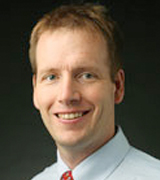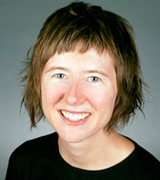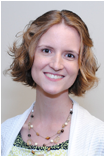In this issue
Upcoming Events
Faculty Teaching Visit: Douglas Clark
October 15th
2:30-5:00pm
Wyatt 223
Blackboard Workshop: Using Media in Blackboard
Monday, October 19th
1:00-1:30
Center for Teaching
Registration is recommended but not required
Faculty Teaching Visit: Lisa Guenther
Tuesday, October 20th
9:35-11:50am
Furman 109
Graduate Student & Postdoc Workshop on Inclusive Teaching
Wednesday, Oct 28th
3:30-5:00pm
Center for Teaching
CFT BLOG
Check out these recent posts to our blog.
What makes group work work?
Three things I learned while writing about test-enhanced learning
STEM Pedagogy Journal Club
Junior Faculty Teaching Fellow Spotlights: Karen Hande and Ravindra Duddu
CFT Welcomes New Graduate Teaching Fellows
Follow The CFT Online
   
Share the CFT on social media!
 
Subscribe
Not a member of the CFT News and Events LISTSERV? Subscribe now to receive future newsletters.
Archives
|
October 2015
October Teaching Visit Opportunities
The Teaching Visits program is an important way by which the CFT promotes collaborative inquiry and reflection, providing case-based opportunities for Vanderbilt teachers to consider choices they have when constructing their classes. A small group of visitors observes a host’s class on a selected day and then engages in an hour of conversation with the instructor about the strategies used in class.
 Douglas Clark Douglas Clark
EDUC 7500: Design of Learning Environments with a Focus on Play
In addition to learning about the theories of education regarding game design, students will themselves design games and play activities with a focus on student motivation, interactivity, cognitive development, professional development, intrapersonal growth, and other goals that are well-grounded in the fields of neuroscience, psychology, and biology. This visit, not only will offer the opportunity to learn about the pedagogies of project-based, collaborative, and problem-based learning Doug deploys in the classroom, but also provide participants with the occasion to engage in discussion with a specialist in learning research.
Date: October 15th
Time: 2:30-5:00pm (Class, 2:30-4:00pm; Discussion, 4:00-5:00 pm)
Room: Wyatt 223
Facilitator: Cynthia Brame
Faculty of Any Rank REGISTER NOW
 Lisa Guenther Lisa Guenther
PHIL 2110: Contemporary Philosophy: Critical Responses to Mass Incarceration
Lisa’s course will focus on the private prison, the Trousdale Turner Correctional Facility, being built at the decommissioned nuclear plant in Hartsville, Tennessee, particularly the examination of space, power, and history of the site. Lisa actively addresses questions of social differences and injustice in her teaching, and does so through pedagogies that are critical, experiential, community-based, and co-creative. The post-class discussion will afford an opportunity for participants to discuss the opportunities and challenges of these pedagogies, of activist teaching, and effective methods for teaching about social differences and power.
Date: October 20th
Time: 9:35-11:50am (Class, 9:35-10:50am, Discussion, 10:50-11:50am)
Room: Furman 109
Facilitator: Joe Bandy
Faculty of Any Rank REGISTER NOW
Back to top

Junior Faculty Teaching Fellow Spotlights:
Anand Vivek Taneja and Anna Richmond
Each month, the CFT Newsletter highlights the work of our Junior Faculty Teaching Fellows. This month, Anand Vivek Taneja, Religious Studies, and Anna Richmond, Nursing, talk about their teaching philosophy and interests.
Anand Vivek Taneja
I am an anthropologist of religion, and I work on new religious forms and inter-religious relations in modern South Asia. My book, Jinnealogy: Time, Islam, and Ecology in the Medieval Ruins of Delhi, focuses on the ritual practices, dream-lives and modes of healing and sociality shared by Hindu and Muslim communities in contemporary Delhi’s medieval ruins, where Islamic spirits known as jinn are venerated as saints. I explore how these theologically novel saint-shrines emerge in a complex landscape of erasures and altered temporalities inaugurated by the Partition of India, and the massive ecological shifts and legal enchantments inaugurated by the post-colonial State, but also represent a continuing dialogue with the subaltern memory of Sufi ethics shared across conventional religious divides. At Vanderbilt, I teach courses on the Sacred and the Secular, Modern Islam, Islam in South Asia, and Religion and Film in India.
My inspiration to become a teacher began when I was an undergraduate. For six years before starting graduate school at Columbia University, I used to work as a Docent on weekends, leading walks around Delhi’s monuments and ruins, sharing the history, stories and traditions of Delhi’s medieval past with a diverse range of people, foreign students, tenured professors, children living in slums, salaried professionals. Through this experience, I learnt many lessons about teaching, such as the value of approachability, interactivity, enthusiasm and engaging narrative in conveying the complex histories of a place. I also learnt the advantage of the immersion in a visual, material, and tactile sensorium in making abstract philosophical ideas and dry historical facts “come alive”. When teaching in a university classroom in Nashville, it is hard to recreate the same immersion. So I find myself experimenting with different methods for making the worlds of South Asia and Islam, experientially distant for most of my students, come alive and become meaningful to them.
For my class on Modern Islam, which I taught for the first time this past semester (Spring 2015), I arranged for a series of films to be screened weekly in the library, in parallel with the themes and topics we were reading and discussing in class. Students were graded on the short papers they wrote in response to the films. This assignment made them watch the films while simultaneously thinking about the texts they were reading in class, and led to them being highly engaged and enthusiastic in subsequent class discussions. As my teaching career progresses, I want to learn and refine more such techniques and strategies of setting up dialogues between often abstract classroom material and the visceral worlds of film, literature, and (as an anthropologist) human interaction.
As I progress in my teaching career, I also want to push students towards a ‘rigorous eclecticism’ in their independent work. For my own research, I combine ethnographic research and oral history with work in government archives, readings of Urdu literature (poetry, hagiographies, antiquarian texts), and even Bombay cinema. This diversity of sources comes from a keen awareness of the interconnectedness of affect, religious forms, history, and the state, and a desire to pursue connections beyond the boundaries usually imposed by disciplines. As a teacher, I want to encourage a similar eclecticism in student work, in terms of both sources and disciplinary forms, but always tempered with rigor.

|
Anna Richmond
I teach clinical and didactic nursing courses to Family Nurse Practitioner students at the Vanderbilt University School of Nursing. I also co-teach a course in Interprofessional Education to the Vanderbilt University Medical School students. At the School of Nursing, we have three semesters to transfer a large amount of information to our full-time students. This means that from the student perspective, time is valuable and every minute of learning needs to be meaningful. To create meaningful experiences for my students, I design my courses to reach each type of learner in the course and plan activities that will engage the student during our time together. Setting the expectation of active participation during class time challenges the student to come to class prepared, but also provides students perspectives on topics other than my own perspective. As I evaluate my course design each year, I look at the curriculum through the eyes of the student. If I think the student would not find the presentation format engaging, then I brainstorm other ways to deliver the information.
My favorite part of teaching is spending time in clinic precepting students. This is when you get to experience those “Aha” moments. Students are always amazed to see that the information learned in the classroom has real application, and they are even more surprised to find that they actually know the information. The self-awareness and self-confidence that students build through these interactions is priceless.
Back to top

October Blackboard Support Offerings
Blackboard Support at the CFT will be offering training and support in October for faculty, graduate students, and staff using Blackboard. Come to our drop-in support hours:
Tuesday, Oct 6th 10-11am
Monday, Oct 12th 1-3pm
Monday, Oct 19th 1-3pm
Monday, Oct 26th 1-3pm
In addition, on Monday October 19, we will be offering a special workshop session called “Using Media in Blackboard” for the first 30 minutes of the drop-in time. This workshop will deal with issues around using media in Blackboard courses, and introduce participants to Blackboard integrated tools and policies. First, the Kaltura My Media tool, provides a place for students and instructors to create, store, and share videos, screencasts, and webcam videos. Second, library and center resources allow instructors to access copyright-cleared media for use in their courses.
Come learn with us about how to best include a variety of media in your Blackboard course. Following the workshop, participants are invited to stay for drop-in support hours where a team of Blackboard specialists will be available to work with Blackboard users to apply these new tools in their own courses.
Registration for the media workshop is recommended but not required. Register here.
Back to top

Inclusive Teaching Workshop for Graduate Student & Postdocs
What is an inclusive classroom? What practices and plans can instructors learn to promote classroom inclusivity? Together, we will examine issues of power and identity as they impact teaching and learning. This workshop is open to Vanderbilt graduate students & Postdocs from across the disciplines who want to improve their teaching portfolio materials. All teaching experience levels are welcome.
Date: Wednesday, October 28th
Time: 3:30-5:00pm
Location: Center for Teaching
Facilitator: Richard Coble and Dani Picard
Graduate Student & Postdocs Register Here
Back to top

CFT Helps to Develop a Free Online Course on Undergraduate STEM Teaching
 “An Introduction to Evidence-Based Undergraduate STEM Teaching” is an open, online course designed to provide future STEM faculty—graduate students and post-docs—with an introduction to effective teaching strategies and the research that supports them. The goal of the eight-week course is to equip the next generation of STEM (science, technology, engineering, mathematics) faculty to be effective teachers, thus improving the learning experience for the thousands of students they will teach. “An Introduction to Evidence-Based Undergraduate STEM Teaching” is an open, online course designed to provide future STEM faculty—graduate students and post-docs—with an introduction to effective teaching strategies and the research that supports them. The goal of the eight-week course is to equip the next generation of STEM (science, technology, engineering, mathematics) faculty to be effective teachers, thus improving the learning experience for the thousands of students they will teach.
The free course was developed by staff at the Vanderbilt Center for Teaching (CFT), in collaboration with the CIRTL Network and the Vanderbilt Institute for Digital Learning. The fall session of the course runs September 28 through November 19.
This is the second offering of the course. To read about the first offering and about the changes made to the course for this fall, see CFT Director Derek Bruff’s blog post, “Version Two: Revising a MOOC on Undergraduate STEM Teaching.”
Back to top

New CFT Teaching Guide on Group Work
 We’ve all been there: victims of unproductive and frustrating group work. Perhaps an instructor poses a question, tells us to turn to our neighbor and discuss it, and we all sit silently…because the answer’s obvious and there’s nothing to discuss. Or perhaps we have an end-of-semester project to develop, and two of the four group members don’t show up for meetings, fail to do their prep, and generally don’t pull their weight. We’ve all been there: victims of unproductive and frustrating group work. Perhaps an instructor poses a question, tells us to turn to our neighbor and discuss it, and we all sit silently…because the answer’s obvious and there’s nothing to discuss. Or perhaps we have an end-of-semester project to develop, and two of the four group members don’t show up for meetings, fail to do their prep, and generally don’t pull their weight.
Hopefully, we’ve also been on the other side of the equation, where group work has allowed us to learn deeply and to produce work that is better than we could produce individually.
How do you develop structures that allow you to incorporate key elements that lead to productive group work? The literature on cooperative learning is a rich resource for answers to that question, and the CFT has recently developed a teaching guide that summarizes much of that literature and provides examples of strategies and tools that can help make your group work rewarding and effective. Check it out and let us know what works for you!
Back to top

BOLD Fellows Program Helps Develop Online Instruction
Vanderbilt’s Center for Teaching and the CIRTL Network (Center for the Integration of Research, Teaching, and Learning) share a mission to enhance excellence in undergraduate teaching. The CFT and CIRTL are partnering to offer the BOLD Fellows program, which is support by NSF grant DUE-1231286 to the CIRTL Network.
2015-16 BOLD Fellow Teams

The program is designed to help graduate student-faculty teams build expertise in developing online instructional modules grounded in good course design principles and our understanding of how people learn. STEM faculty members partner with graduate students or postdocs to design and develop online modules for integration into a course. The teams investigate the use of these modules, collecting data about the effectiveness of the module for promoting student learning. You can view a gallery of past BOLD projects on the BOLD website.
Back to top
|

![]()
 “An Introduction to Evidence-Based Undergraduate STEM Teaching” is an open, online course designed to provide future STEM faculty—graduate students and post-docs—with an introduction to effective teaching strategies and the research that supports them. The goal of the eight-week course is to equip the next generation of STEM (science, technology, engineering, mathematics) faculty to be effective teachers, thus improving the learning experience for the thousands of students they will teach.
“An Introduction to Evidence-Based Undergraduate STEM Teaching” is an open, online course designed to provide future STEM faculty—graduate students and post-docs—with an introduction to effective teaching strategies and the research that supports them. The goal of the eight-week course is to equip the next generation of STEM (science, technology, engineering, mathematics) faculty to be effective teachers, thus improving the learning experience for the thousands of students they will teach.
 We’ve all been there: victims of unproductive and frustrating group work. Perhaps an instructor poses a question, tells us to turn to our neighbor and discuss it, and we all sit silently…because the answer’s obvious and there’s nothing to discuss. Or perhaps we have an end-of-semester project to develop, and two of the four group members don’t show up for meetings, fail to do their prep, and generally don’t pull their weight.
We’ve all been there: victims of unproductive and frustrating group work. Perhaps an instructor poses a question, tells us to turn to our neighbor and discuss it, and we all sit silently…because the answer’s obvious and there’s nothing to discuss. Or perhaps we have an end-of-semester project to develop, and two of the four group members don’t show up for meetings, fail to do their prep, and generally don’t pull their weight.![]()







